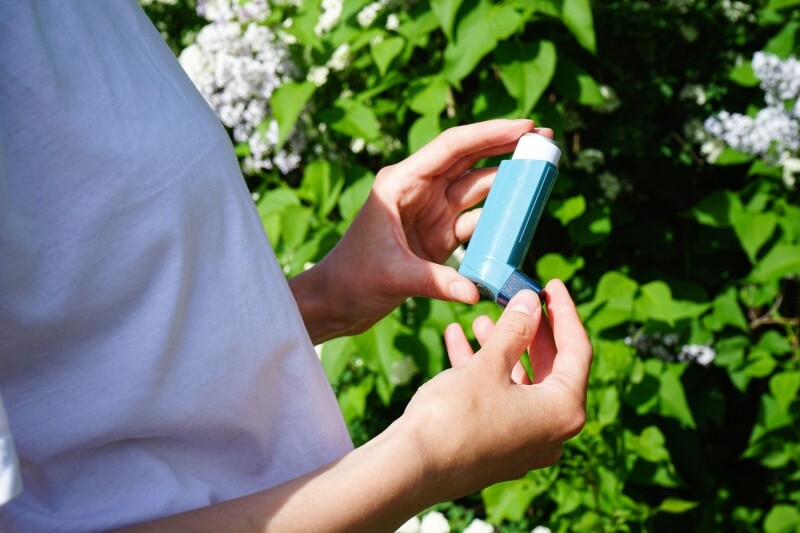
Did you know the Global Burden of Disease (GBD) report states that about 30 million people in India have asthma? Hot and humid weather and air pollution can be difficult on your respiratory system. However, this condition can be managed efficiently using some lifehack strategies.
What you need to know:
- Common triggers and risk factors
- Symptoms of asthma in children
- Managing asthma in summer
- Special considerations for summer activities
Common triggers and risk factors
While it is difficult to pinpoint the exact triggers and causes of asthma, knowing about these probable triggers of asthma can help in fast recovery. Here are some of them:
- Pathogens: The summer air contains germs that can cause infections and colds. Several bacteria and viruses are significantly more active in the hot and muggy summer.
- Allergy: Allergy to cockroaches, dust mites, mold, pet dander, or pollen can increase due to indoor pollutants.
- Irritants: Things around your child that can irritate, such as air pollution, chemicals, cold air, odors, or smoke, can irritate your airways and make things worse for people with asthma or COPD (chronic obstructive pulmonary disease)
- Stress: This can cause shortness of breath and make symptoms more severe.
Symptoms of asthma in children
Asthma is a long-term medical condition that narrows lung airways due to inflammation and swelling. This eventually causes mucus to deposit on the walls, resulting in shortness of breath. Shortness of breath means that the body isn’t getting enough oxygen, leading to other problems like heart attacks and COPD (chronic obstructive pulmonary disease).
With summer vacations coming up, children are likely to spend more time playing in the sun. It is essential to understand asthma in children, as it can affect their ability to enjoy outdoor activities. Childhood asthma, or pediatric asthma, is a lung condition that adults experience, but kids can exhibit different symptoms. Here are some of the symptoms to watch for:
- A cough that doesn’t go away
- Coughing spells
- Increased coughing after a viral infection
- Choking on coughs or struggling to breathe
- Rapid breathing
- Chest pain or tightness
- Wheezing sound while breathing out
- Shortness of breath
- Tight neck and chest muscles
- Fatigue
Managing asthma in summer
While many people’s asthma symptoms get better in the summer, the hot and humid conditions can narrow your airways, causing difficulty in breathing for some people. Here are some strategies that you can incorporate into your daily life to manage your asthma:
Medication adherence
Here are some types of medications that can help:
- Bronchodilators: They help open narrowed airways and ease coughing, wheeziness, shortness of breath, and troubled breathing.
- Combination inhalers: These inhalers are prescribed for emergency relief.
- Steroids: Steroids are required for short-term treatment or to control sudden asthma flare-ups!
Emergency preparedness
Here are some emergency strategies that you can use for combating asthma in summer:
- Keep your surroundings clean to prevent and avoid dust, pollutants, pollen, or viruses that cause asthma.
- Take the prescribed medicines to strengthen your immunity so you will not have any allergies, even if exposed.
- Wear a mask to reduce exposure to allergens.
- Wash your hands properly from time to time.
Special considerations for summer activities
Want to make the most of the summers while managing your asthma with fun activities? Here are some precautions that can help:
Swimming and asthma

Swimming has been recommended for asthma patients as it is associated with potential health advantages, such as better physical and mental health. However, keep your inhaler nearby in case of emergency asthma attacks.
Traveling with asthma
Here are some precautions to take if you are traveling with asthma:
- Avoid places with high air pollution levels.
- If you are visiting a cold place, it is wise to warm your sheets and blankets and drink extra fluid to reduce the mucus lining inside. Get a flu vaccine before the trip to avoid colds and infections.
- Stay in a non-smoking hotel room to avoid secondhand smoke.
- Stay away from smokers and places where smoking is allowed.
- Wash your hands often to avoid colds and infections. Use a hand sanitizer if you can’t wash your hands with soap and water.
While asthma in summer is a complicated medical condition, you can easily manage it by following the abovementioned steps. If you still experience asthma symptoms, then visit a medical practitioner immediately.
Stay tuned to the Activ Living Community. Get updated with the latest health tips and trends through expert videos, podcasts, articles, and more on nutrition, fitness, mindfulness, and lifestyle conditions like Asthma, High Blood Pressure, Cholesterol, and Diabetes. Activ Living ke saath sahi sehat ki shuruaat ABHIkaro.
You may also be interested in the following blogs:
Popular Searches
How to lower blood pressure | Fruits good for liver | Unhealthy foods | Ragi Benefits | Basal Metabolic Rate | Acupressure points for High Blood Pressure | Ayurvedic medicine for blood pressure | How to control cholesterol at home | Homeopathy for Asthma | Biological Age | Home remedies for TB | Natural beta blockers | Negative effects of internet | Types of walking | Blood pressure calculator | Blood sugar calculator | BMI Calculator





 1800-270-7000
1800-270-7000







